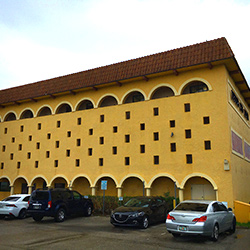 Priligy and Alcohol: What You Need to Know
Priligy and Alcohol: What You Need to Know
Understanding What Priligy Is and How It Works
Priligy, also known by its trade name Dapoxetine, is a prescription medication specifically designed to treat premature ejaculation in men. As an on-demand medication, Priligy works by increasing serotonin levels in the brain, which helps to delay ejaculation. This mechanism allows for improved control over ejaculation, extending the time before climax during sexual activity. Priligy is classified under the selective serotonin reuptake inhibitors (SSRIs), which are often referred to as 'Happy Pills' due to their mood-enhancing effects. When considering starting Priligy, it is crucial to follow the sig provided by your healthcare professional to ensure effective and safe use.
| Aspect | Details |
|---|---|
| Generic Name | Dapoxetine |
| Classification | Selective Serotonin Reuptake Inhibitor (SSRI) |
| Purpose | Treats Premature Ejaculation |
| How it works | Increases Serotonin Levels |
The Interaction between Priligy and Alcohol

Combining Priligy with alcohol isn't just a cocktail of substances; it can be a risky interaction that might compromise your health. Priligy, primarily a treatment for premature ejaculation, works by increasing serotonin levels in the brain. Alcohol, on the other hand, depresses the central nervous system. When you mix the two, the efficacy of Priligy can diminish, and the side effects may become more pronounced.
Many men take Priligy to improve their intimate relationships, but a night out involving drinks can lead to diminished results and increased risk. Experts point out that both substances metabolize differently, and drinking alcohol while on a priligy script might also lead to dehydration and low blood pressure, making the situation even more complicated.
Risks of Mixing Priligy with Alcohol
Mixing priligy with alcohol can heighten the risk of severe side effects and complications. When combined, these substances can negatively impact your central nervous system, acting almost like a cocktail of effects that compromise both efficacy and safety. The sedative properties of alcohol can intensify the dizziness and light-headedness often associated with priligy use, potentially creating a dangerous scenario. Additionally, this combination might disrupt the drug’s effectiveness, making it harder to achieve the desired results. It’s crucial to follow the sig provided by your prescriber and avoid alcohol to minimize health risks. Failure to adhere could lead to situations where immediate medical attention ('stat') is necessary, emphasizing the importance of carefully managing your script for optimal outcomes.
Potential Side Effects to Be Aware of

While Priligy is an effective solution for premature ejaculation, it's essential to be aware of its potential side effects. Common reactions range from dizziness and headaches to nausea, which can be more intense if mixed with alcohol. A combination of Priligy and alcohol amplifies these effects, making tasks such as driving hazardous. Some users report a significant drop in blood pressure, known as orthostatic hypotension, particularly when standing quickly after sitting or lying down. Additionally, the 'hangover' feeling may persist, leaving you with prolonged fatigue and an increased risk of injury. It's crucial to follow the 'Sig' provided by your doctor and avoid indulging in a 'Pharm Party.' Understanding these risks will help you manage your medication safely and effectively.
Expert Recommendations on Priligy and Alcohol Use
Navigating the intersection of Priligy and alcohol consumption requires careful consideration. Experts strongly advise against mixing the two, echoing the principle that Rx safety should always come first. The main concern lies in their compounding effects. Alcohol can amplify the side effects of Priligy, potentially leading to dizziness, fainting, and lowered blood pressure. Given these risks, experts underscore the importance of following the Sig strictly and ensuring no deviation without consulting your prescribing physician.
It's also worth noting that anecdotal evidence from those who counted and poured Priligy scripts reveals mixed results. Some report negligible interactions, while others have experienced heightened side effects. Expert opinion leans heavily towards caution, particularly discouraging any attempt to join a pharm party where alcohol and medications are mixed. Ultimately, staying informed and vigilant is key to safely managing Priligy use.
| Consideration | Expert Advice |
|---|---|
| Avoid Alcohol | Strictly discourage mixing with Priligy |
| Potential Side Effects | Increased dizziness, fainting, lowered blood pressure |
Real-life Experiences: Testimonials and Case Studies
One man shared his story of taking Priligy alongside a night out with friends. The hangover he experienced was intensified, making for a tough recovery the next day. Another individual recounted how a mix of Priligy and a cocktail resulted in severe dizziness.
A third story highlighted a person who followed the sig carefully and avoided alcohol altogether, leading to a much better experience. These testimonials underscore the importance of understanding Priligy's interactions with alcohol. Lastly, case studies show a significant number of adverse reactions reported when combining these substances, reinforcing expert recommendations to exercise caution.
Visual Health & Surgical Center

Visual Health & Surgical Center
Palm Springs FL 33461
(561) 964-0707
